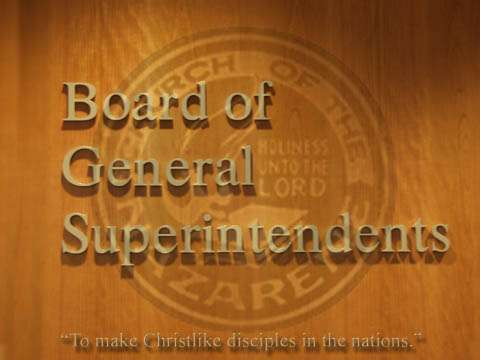
By Gustavo A. Crocker
“If you are planning for a year, sow rice;
if you are planning for a decade, plant trees;
if you are planning for a lifetime, invest in people.”
Chinese Proverb

The sustainability of every congregation, organization, community, or social setting—regardless of its size and complexity—relies not only on the quality of its leaders, but also on the way in which those leaders prepare others to lead after they have moved on. I have learned that important tenet while witnessing and presiding at ordination services with the church. I still remember the old language of our Manual that stated that “the perpetuity of the church depends largely on the spiritual qualifications, character, and manner of life of its ministers.” I would add that the sustainability of every congregation depends largely on the ability of the church to develop new leaders from within. In other words, the longevity of our church will depend on the quality of our current leaders and on the development of a new generation of servant leaders who will take our church to where God wants it to be.
The apostle Paul was very mindful of this reality. He had received from Barnabas and the disciples—who had also received it from Christ—the privilege to proclaim the good news of salvation to the world. Early in his ministry, he realized the task was greater than his capacities and the fulfillment of his task would depend on his ability to train, equip, empower, and release others for the sake of the kingdom of God. His success was not necessarily predicated by his missionary accomplishments, but by his focus on multiplying himself in others. Having learned it from those who entrusted him, he instructed young Timothy to do the same:
“And the things you have heard me say in presence of many witnesses,
entrust to reliable people who will also be qualified to teach others”
(2 Timothy 2:2 NIV).
From Christ to the disciples, from the disciples to Barnabas, from Barnabas to Paul, from Paul to Timothy, from Timothy to reliable people, from reliable people to others, and from others to us, this principle of leadership succession has been the key for the church to be present, alive, and engaged in every generation. Undoubtedly, there is no success without succession.
Leadership succession is not a complex organizational paradigm. On the contrary, it is a simple organic principle that basically relies on vision, equipping, and empowerment. Visionary leaders are those who, from the very beginning of their journey, realize they are not permanent but the church is. As a result, they realize that one of their primary roles is to find reliable people in whom to entrust the church from day one. These newly identified, emerging leaders do not need to be a finished product. Just like any of us, every member of our congregations is “a leader in the making.” All we have to do is prayerfully discover them by seeing their potential and willingness. We must remember that “when we see a shepherd boy, God sees a king…”
This succession mindset helps leaders invest themselves in those lives entrusted to them as their potential successors. And even though the leader does not make the succession decision, he or she prepares the soil for it. After spending time with Joshua, Caleb, and the leaders of the other tribes, Moses received God’s instructions for succession: “…commission Joshua, and encourage and strengthen him, for he will lead this people across and will cause them to inherit the land that you will see” (Deuteronomy 3:28 NIV). While Moses did not get to lead the people to the Promised Land, part of his success was in equipping and developing the leaders who would eventually finish the task.
Conversely, failing to develop new leaders will lead us into failure. The “Joshua Syndrome” is one of the classic biblical examples where a godly leader failed to prepare the next generation and, as a result, his work was limited to his leadership tenure only. Joshua finished his journey in what many would consider a “successful conquest of the Promised Land.” However, after he died and “that whole generation had been gathered to their ancestors, another generation grew up who knew neither the Lord nor what he had done for Israel” (Judges 2:10 NIV). His task ended with him.
Pass it on! Remember: There is no success without succession.







